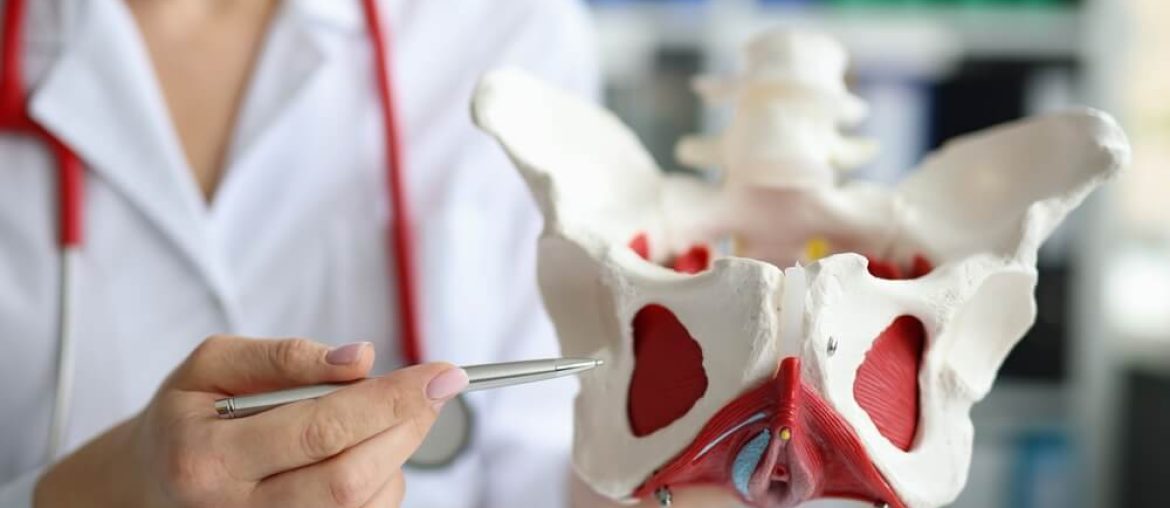As many women today live with pelvic prolapse, our team of women’s health experts can provide treatment for your painful, uncomfortable symptoms through comprehensive medical care. At May-Grant OB/GYN, our team can diagnose and treat your causes of pelvic prolapse and help you find long-lasting relief.
What is Prolapse?
Prolapse, also called pelvic organ prolapse, causes the muscles and connective tissues along the pelvic floor to weaken and collapse. Prolapse typically develops after childbirth, after a hysterectomy, and after menopause. While not life-threatening, this condition can cause pain and discomfort. Sometimes pelvic organ prolapse doesn’t show any symptoms, but some forms can contribute to other problems such as urinary or anal incontinence. These include:
- Anterior Vaginal Prolapse: During an anterior vaginal prolapse, the bladder weakens and collapses, bulging into the front of the vaginal wall.
- Posterior Vaginal Prolapse: The bowels and muscles supporting the bowels weaken and collapse, bulging or handing down into the vagina.
- Uterine Prolapse: A uterine prolapse causes the womb to bulge and hang down into the vagina due to weakened pelvic muscles above the reproductive system.
- Rectal Prolapse: Also known as rectocele, the rectum area bulges along the front wall into the back of the vagina and causes difficult bowel movements and discomfort.
- Urethra Prolapse: During a urethra prolapse, the urethra, or tube that carries urine from the bladder, collapses and bulges into the vagina.
The risk of pelvic prolapse increases with age, and those with a family history of pelvic prolapse have a higher risk. Painful symptoms, including feelings of fullness, pelvic pressure, urinary incontinence, and painful sex, can indicate a need for treatment. At May-Grant OB/GYN, our team can provide various treatment options for pelvic prolapse to alleviate your symptoms.
Treatment Options For Prolapse at May-Grant OB/GYN
Treatment for pelvic prolapse depends highly on the severity of your condition, and through proper examination and testing, our team of midwives, nurse practitioners, and physicians can provide various treatment options, including:
- Pessary Devices: These devices are a nonsurgical way to support the pelvic floor. These silicone devices work to press against the vaginal and uterine walls, aiding in vaginal, urinary, and bowel function.
- Hormonal Treatment: Some hormonal treatments, specifically estrogen therapy, can ease symptoms of vaginal dryness and discomfort during sex. It can be applied as a cream, tablet, or as vaginal ring.
- Physical Therapy: Some women can experience relief and help strengthen their pelvic muscles through pelvic floor exercises and other physical therapy treatments.
- Surgery Recommendation: Most often, women with painful pelvic prolapses will need surgical interventions to resolve urinary and anal incontinence. For more information about surgical options, please get in touch with our practice to learn more.

Prevention
While not all cases of prolapse can be prevented, certain measures can reduce the risk:
- Regular pelvic floor exercises to strengthen muscles.
- Maintaining a healthy weight to reduce pressure on pelvic organs.
- Avoiding heavy lifting and managing chronic coughing.
- Addressing constipation to prevent straining during bowel movements.
Outlook
With appropriate treatment, the outlook for individuals with prolapse is positive. Many experience significant relief from symptoms and an improvement in quality of life. The team at May-Grant OB/GYN is dedicated to providing effective treatments and support for women facing prolapse, ensuring personalized care for each patient.
Frequently Asked Questions
Q: Can prolapse happen to women of all ages?
A: While prolapse is more common in postmenopausal women, it can affect women of all ages, especially those who have had multiple childbirths.
Q: Is surgery always required for prolapse?
A: No, surgery is not always necessary. Many cases can be managed with conservative treatments, depending on the severity of the condition.
Q: How long is the recovery after prolapse surgery?
A: Recovery varies depending on the type of surgery but generally involves several weeks of rest and gradual return to normal activities.
Q: Can prolapse recur after treatment?
A: There is a risk of recurrence, which is why follow-up care and preventive measures are important components of the treatment plan.
Take Control of Your Pelvic Health with May-Grant OB/GYN
If you’re experiencing symptoms of prolapse, don’t wait to seek help. The team at May-Grant OB/GYN is here to offer expert care and support. With a focus on personalized treatment plans and the latest in OB/GYN care, we’re dedicated to improving your health and well-being. Call us at 717-397-8177 to schedule your appointment and take the first step towards relief and recovery.


















